 One of the most common diseases of the male genitourinary system is erectile dysfunction, that is, erectile dysfunction. Most men consider this disease to be a personal problem, which is not customary to talk about, and do not consult a doctor. Some of them think that erectile dysfunction is incurable. This is not the case: in 95% of cases, erectile dysfunction can be cured. The main thing is to accurately determine the cause of this ailment.
One of the most common diseases of the male genitourinary system is erectile dysfunction, that is, erectile dysfunction. Most men consider this disease to be a personal problem, which is not customary to talk about, and do not consult a doctor. Some of them think that erectile dysfunction is incurable. This is not the case: in 95% of cases, erectile dysfunction can be cured. The main thing is to accurately determine the cause of this ailment.
Treatment of impotence in Moscow according to international protocols is possible at the European Medical Center. The specialists of the EMC Urological Clinic have the capabilities to carry out laboratory and instrumental diagnostics, as well as therapy of diseases of the male genitourinary system, including erectile dysfunction.
Signs of erectile dysfunction
Erectile dysfunction is not a disease per se, but only a diagnostic symptom that signals the presence of more serious health problems, so you should immediately consult a doctor and undergo an examination if you find yourself with:
-
difficulties in achieving or maintaining an erection;
-
The erection is getting weaker;
-
morning erection becomes less pronounced.
Causes of erectile dysfunction
Of the several dozen potential causes of erectile dysfunction, atherosclerosis (in various manifestations), hypertension, overweight and diabetes mellitus appear as significant.
Moreover, recent scientific evidence has proven that erectile dysfunction is a precursor to serious cardiovascular diseases (myocardial infarction, stroke, etc.).
To date, it is customary to distinguish four main forms of erectile dysfunction:
-
vasculogenic (vascular) form;
-
psychogenic (due to stress);
-
neurogenic (in diseases of the nervous system and spine);
-
endocrine (in diabetes mellitus and andropause, the male "menopause").
The diagnosis of erectile dysfunction at the EMC Urological Clinic is carried out by a team of qualified doctors with many years (from 10 and more) of experience in this field. During the examination, the patient should be ready to tell the doctor about his problem, as well as answer his questions. This will help to assess the degree of erectile dysfunction. Then a urological examination is prescribed.
Risk factors for erectile dysfunction:
-
Sedentary lifestyle.
-
Irregular, improper diet.
-
Vascular diseases associated with the development of diabetes mellitus or hypertension, occlusion of the pelvic arteries, smoking, elevated cholesterol levels and disorders of the venous system.
-
Psychological disorders caused by fatigue, stress, depression, drug addiction, alcoholism, excessive arousal or fear of sexual impotence.
-
Endocrine disorders: hypogonadism, hypothyroidism, diabetes mellitus, obesity.
-
Neurological problems: strokes, Parkinson's disease, Alzheimer's disease, spinal cord diseases and injuries.
-
Diseases and injuries of the penis: Peyronie's disease, injuries, wounds, inflammation.
-
Taking medications: hormones, tranquilizers, antidepressants.
-
Chronic prostatitis.
-
Age.
Diagnosis of erectile dysfunction
Careful and competent diagnosis is the key to successful treatment. It is important not only to establish a diagnosis, but to identify the true causes of erectile dysfunction. To do this, you should consult a urologist-andrologist.
In the EMC Urology Clinic, you can undergo all the necessary diagnostic measures within a few hours and receive an individual treatment plan for erectile dysfunction. The research is carried out in our own laboratory, which significantly speeds up the process of delivering results.
Treatment of erectile dysfunction
As mentioned earlier, impotence is not a disease, but a symptom of another disease, so depending on the diagnosis, medication, surgery, or psychological treatment is chosen.
Medical treatment of erectile dysfunction
This method of treatment consists in taking medications as prescribed by the attending physician. The action of the drugs is aimed at increasing the tone of the body, as well as increasing the intensity of blood flow in the vessels of the penis.
Drug treatment is usually temporary and is not effective in all cases.
Vascular surgery on the penis
In case of detection of pathology of the vessels of the penis, surgical intervention is performed, the purpose of which is to increase the flow of arterial blood to the penis and slow down the process of venous outflow.
The effectiveness of this method of treating erectile dysfunction is 20-80%.
Penile replacement
The most radical way to restore erectile function is penile replacement. Currently, there are several types of prosthetics. The simplest of these is semi—rigid rods. However, more complex devices with elastic cylinders are most often used, into which an erection-enhancing fluid is injected.
Psychological treatment of erectile dysfunction
Psychological forms of impotence are treated by a psychotherapist who specializes in the treatment of psychosexual disorders. The treatment tactics in each case are selected strictly individually.
Remedies and drugs for the treatment of erectile dysfunction
Pharmacies currently offer various means to increase erections. Biological supplements (dietary supplements) are often sold under the means for erection, which are ineffective and may have an unpredictable effect, since they have not passed serious clinical trials. It is important to understand that only a doctor can prescribe medications professionally.
Impotence treatment at the EMC Urological Clinic
Specialists of the Urological Clinic of the European Medical Center pay great attention to men's health problems, including erectile dysfunction.
It is important to understand that the potency will not recover on its own. The disease will progress, complicated by organic changes in the penis (fibrosis of the corpus cavernosum). All these factors reduce the chances of recovery. That is why, at the EMC Urological Clinic, we have done everything possible to make men physically and psychologically comfortable to be observed with us.
Why do they trust us?
-
An international team of specialists.
-
European and American treatment protocols.
-
High-tech equipment.
-
Expert-level diagnostics.
-
Own clinical diagnostic laboratory.
-
A comfortable hospital.





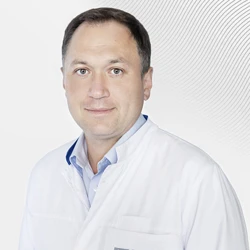
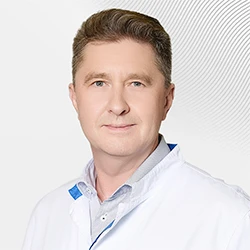
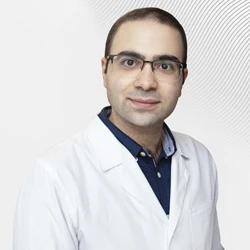
.webp)
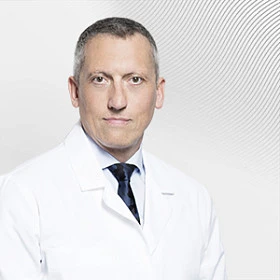
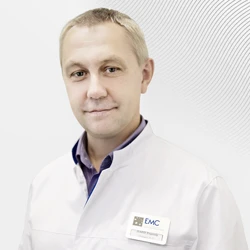
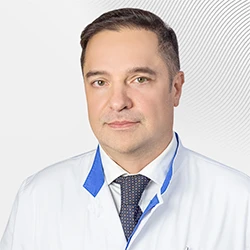
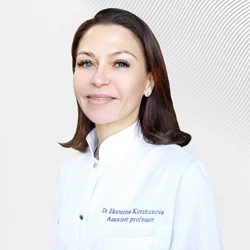

.webp)
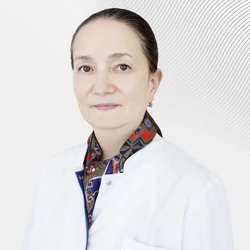
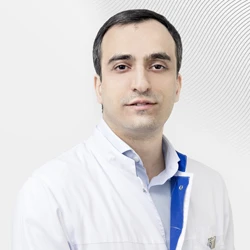
.webp)
